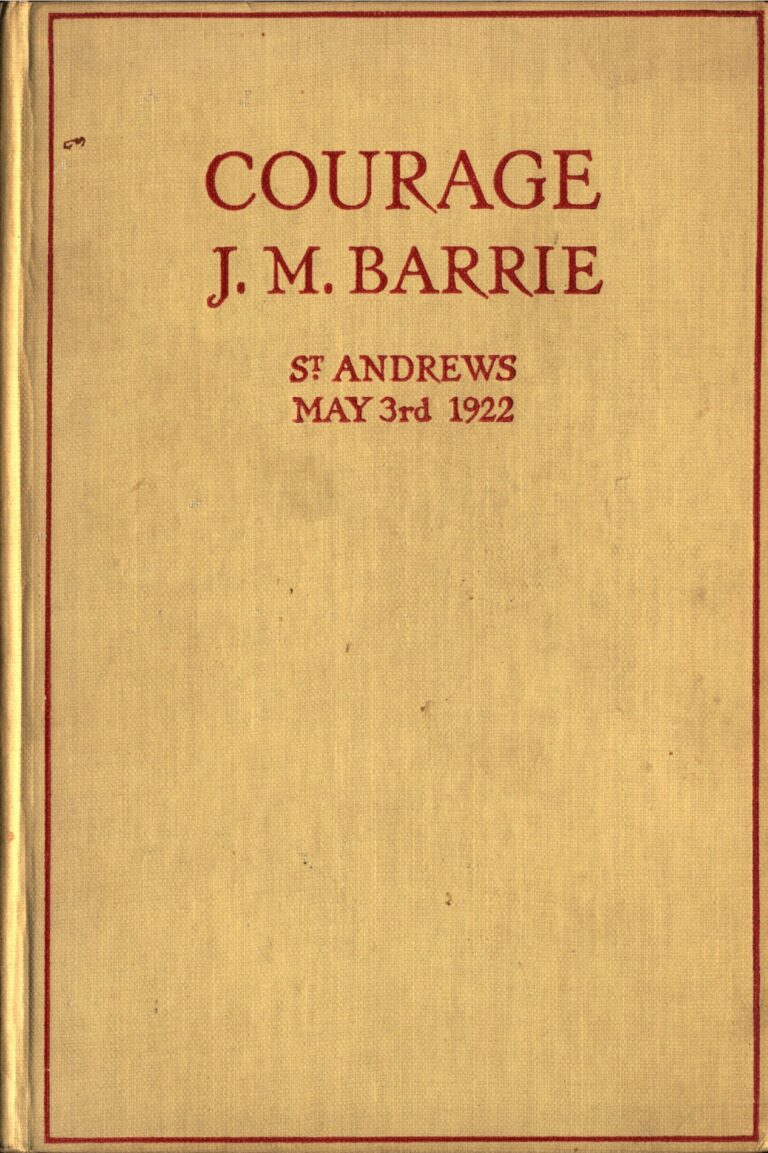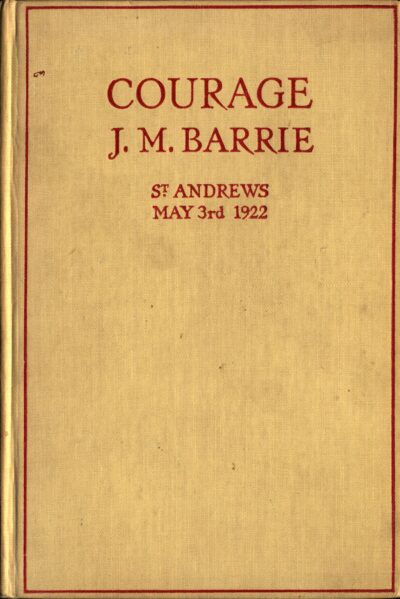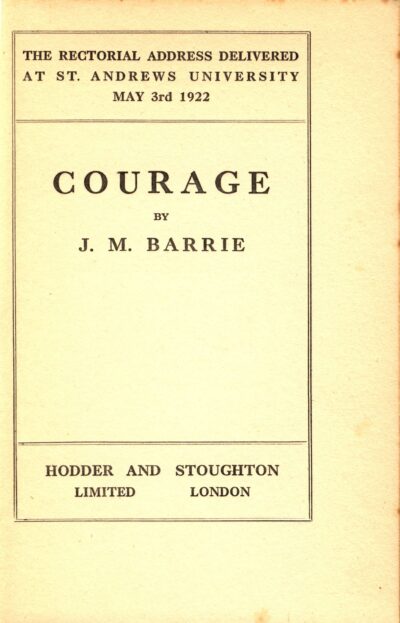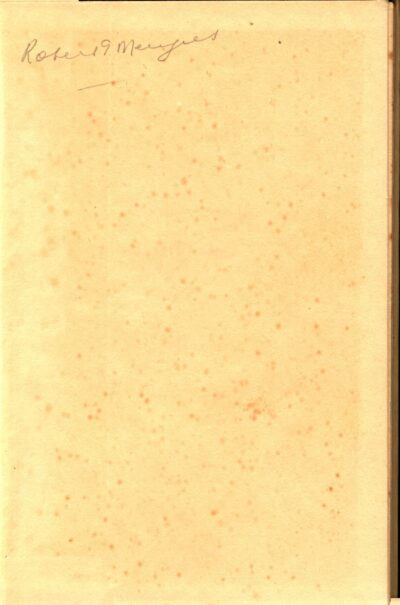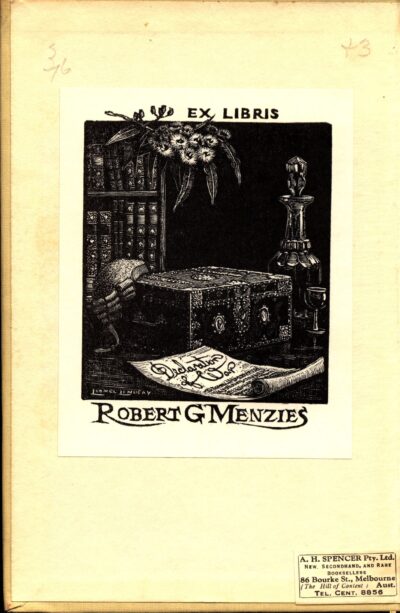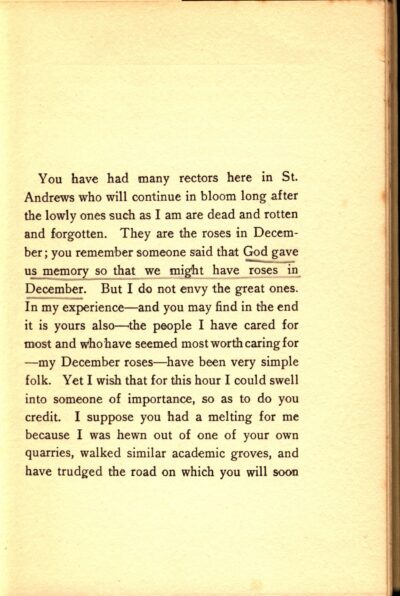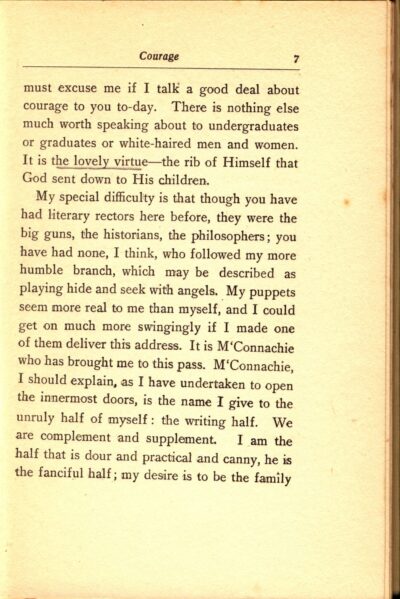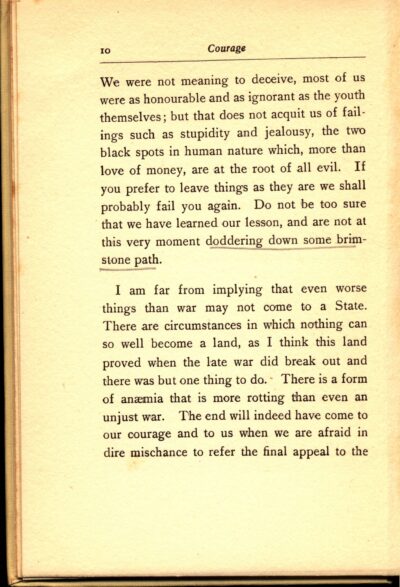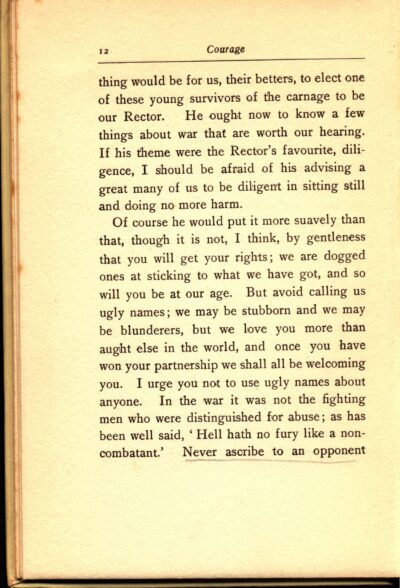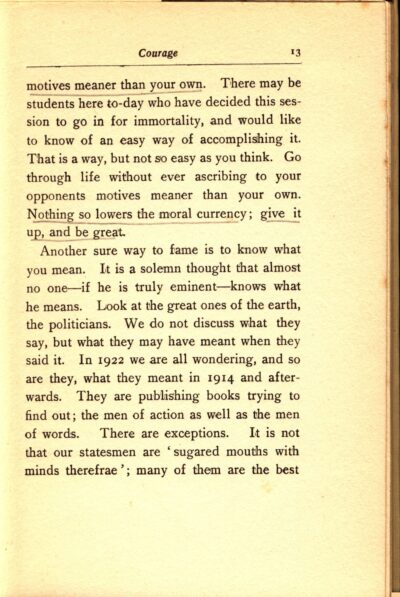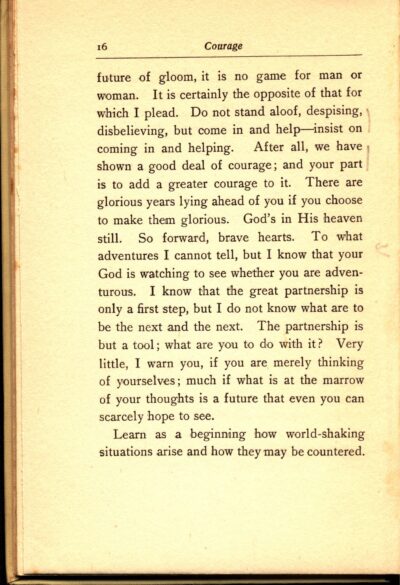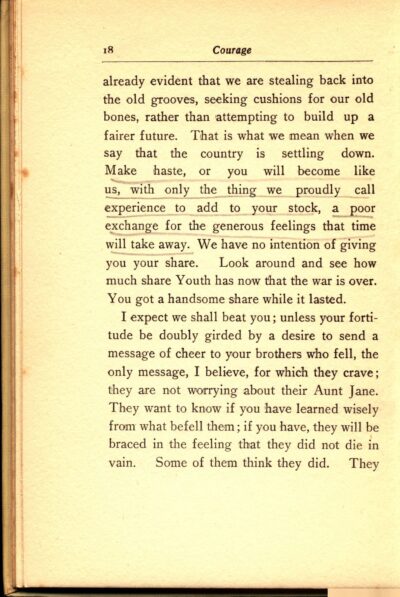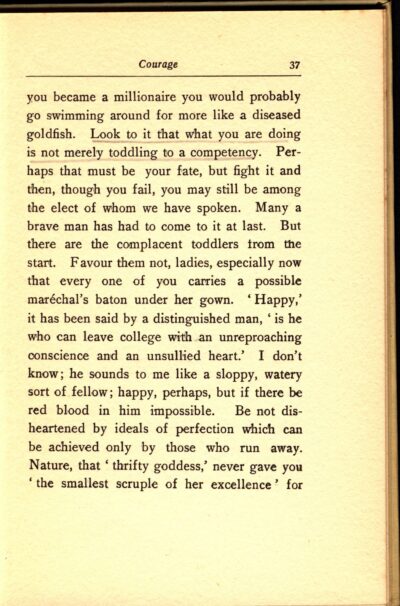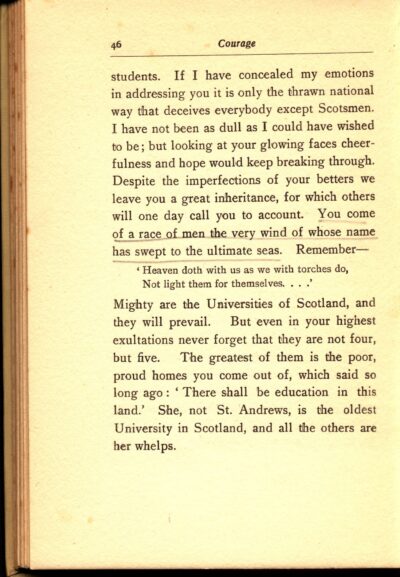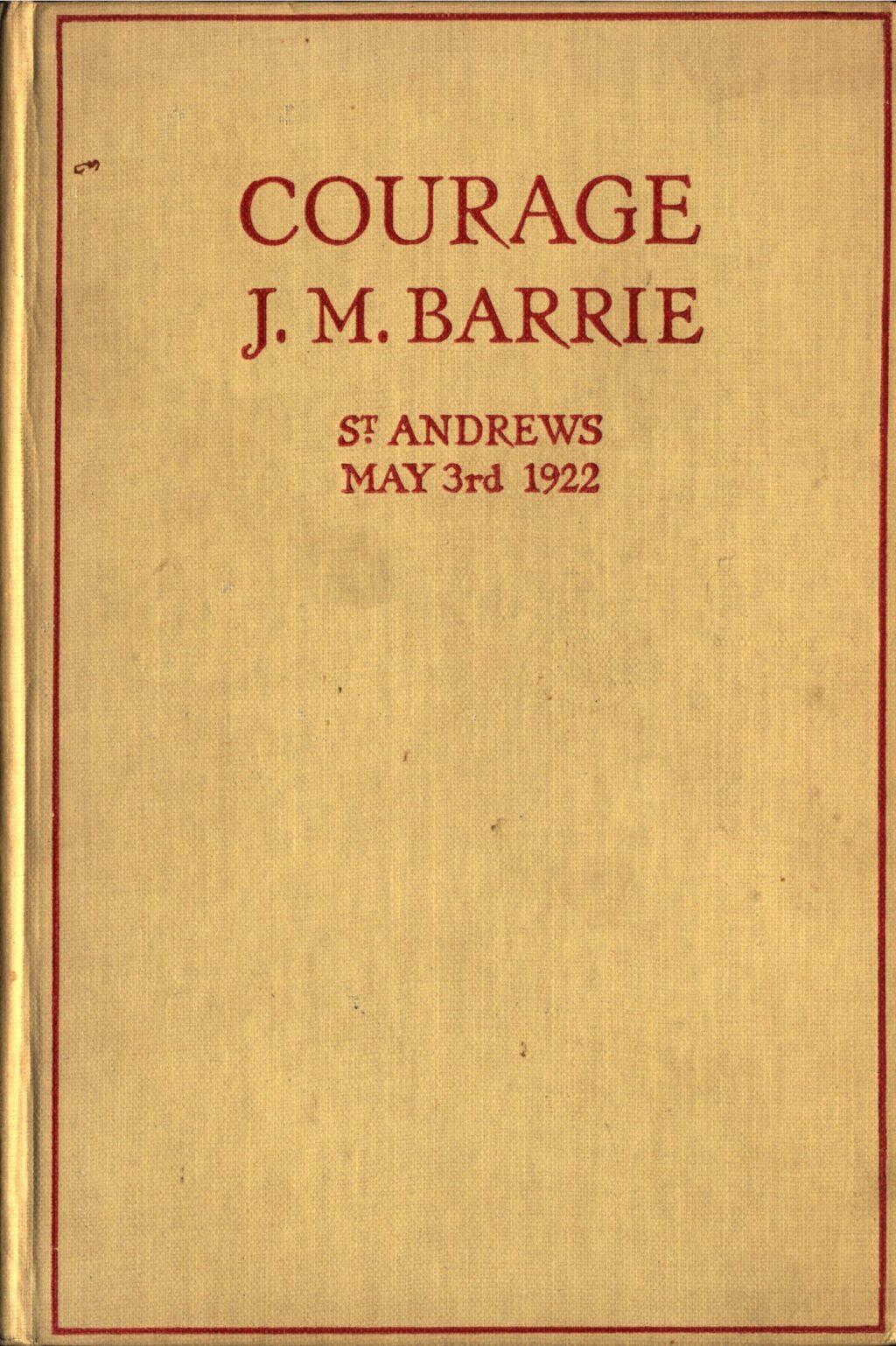J.M. Barrie, Courage: The Rectorial Address delivered at St Andrews University, May 3rd 1922 (1922)
James Matthew Barrie was a Scottish novelist and playwright, now best remembered for authoring Peter Pan.
Born in Kirriemuir, Angus in 1860 as the son of a weaver, Barrie’s childhood was defined by the death of his brother in an ice-skating accident and the mental anguish this inflicted on his mother. Barrie did his best to fill the hole his brother’s absence had left in his mother’s heart; dressing in his clothes, trying to imitate his distinctive whistle, and often reading stories in an effort to entertain her. Likewise, even as a child, Barrie would devise and perform plays, which he staged in the wash-house opposite the family home.
Convinced he wanted to be an author, Barrie attended the University of Glasgow before publishing his first successful book Auld Licht Idylls in 1888. He would go on to have a prolific career, though one that continued to be marred by tragedies like the death of two sons: one killed in the Great War in 1915 and another drowning while swimming with a friend. By the 1920s Barrie was a household name and one of the most respected figures in his field, and he was bestowed with honours, being made a Baron and decorated with the Order of Merit.
As a young man with a keen interest in literature and a bias towards all things Scottish, Menzies seems to have become enamoured with Barrie’s work. The Menzies Collection contains seven different Barrie books, and in Courage he has underlined several important life lessons which Barrie was trying to impart to his audience of university graduates: never ascribe to an opponent motives meaner than your own, be involved rather than standing aloof and finding fault, make haste because the strength and vigour of youth is fleeting, and try to excel rather than letting yourself become content with merely being competent. Later, in a lecture he delivered to the University of Cambridge in 1960, Menzies would quote from Courage that the Scottish were a people ‘the very wind of whose name had swept the ultimate seas’.
Before Barrie passed away in 1937, Menzies, while in England as Australian Attorney General, would take the opportunity to visit him. After a dinner in which Menzies had sat next to Barrie but seemingly failed to engage his attention, Barrie invited him for a walk around the garden during which they hit a chord discussing plays and cricket. Then, Barrie drew ‘Mingies’ (pronounced in the Scottish way) aside, insisting that he show him the game that he had taught several Australian cricketers:
‘I do wish I had time to show you the two greatest pastimes in the world – shove halfpenny and sticking stamps on the ceiling. You put a stamp on a penny face down, damp it, and flick it up. The beauty of it is you get your money back.’
Menzies was then ushered into a room the entire ceiling of which had been covered in stamps in this manner, and he proceeded to have a go himself. ‘The spectacle of two Scotsmen throwing money and collateral away in this reckless manner delighted all beholders’, including fellow guest, the future Governor General William Morrison. On arriving home from Britain Menzies recounted the story, insisting that this peculiar habit was not a sign of Barrie’s advanced age, but that:
‘With all the wisdom that Barrie has given us, he retains a delightful boyish irresponsibility and sense of fun. The ability to retain this sense, I think is what distinguishes the sane from the insane, and sane nations from those grim ones which are threatening the peace of the world.’
You might also like...
Sign up to our newsletter
Sign up for our monthly newsletter to hear the latest news and receive information about upcoming events.

